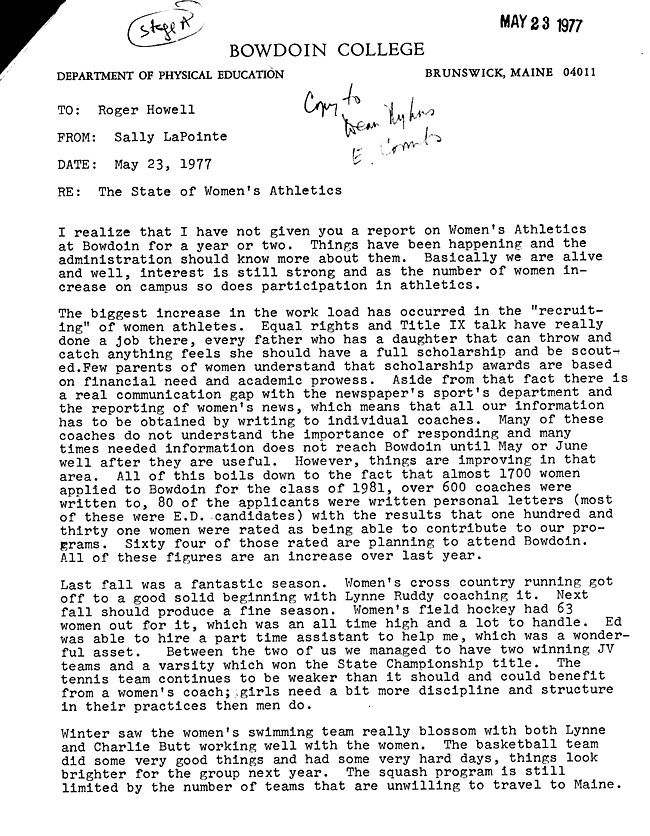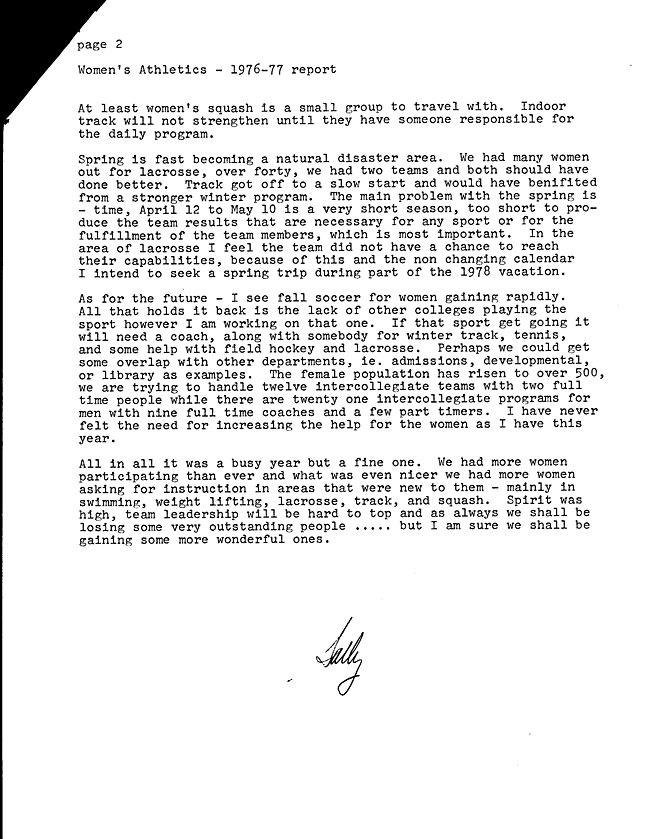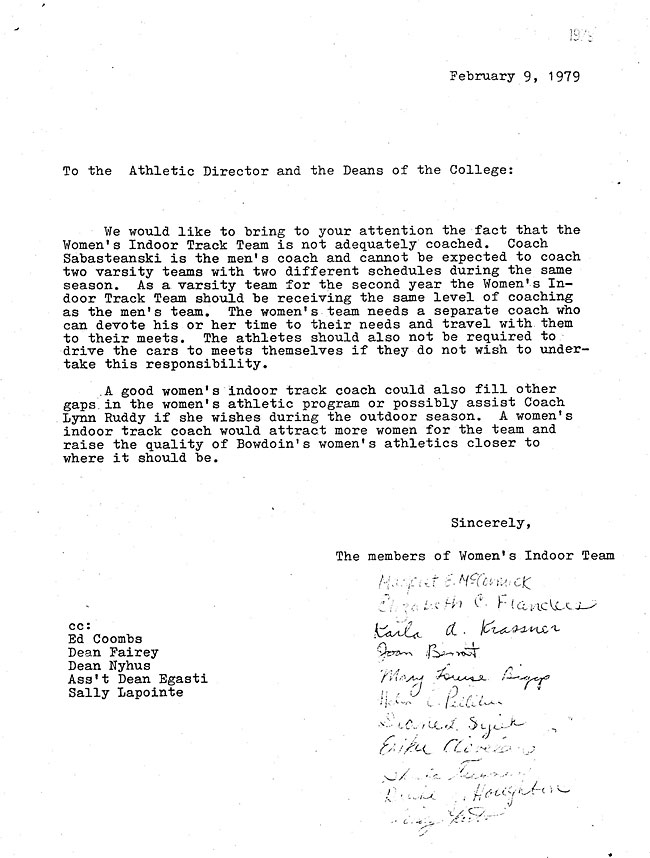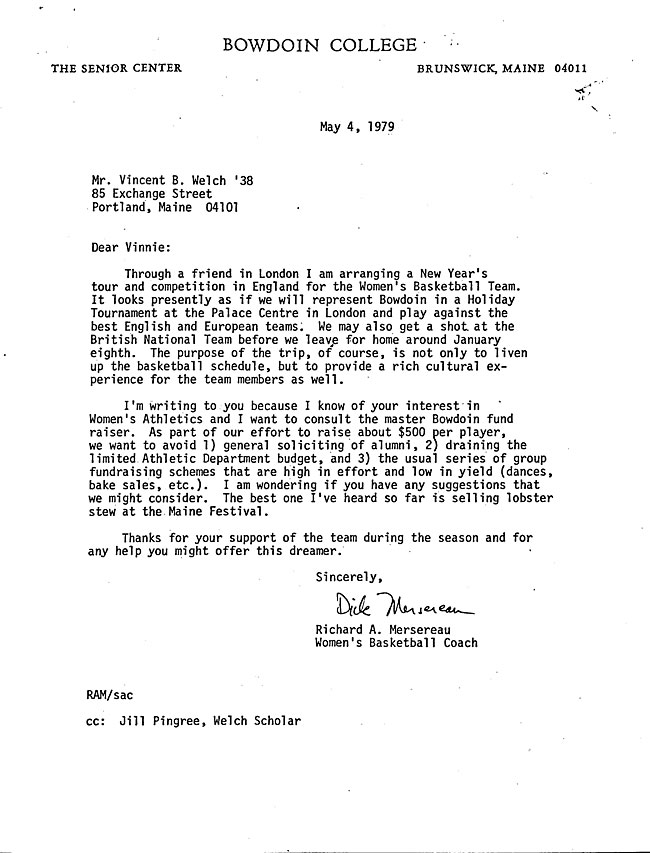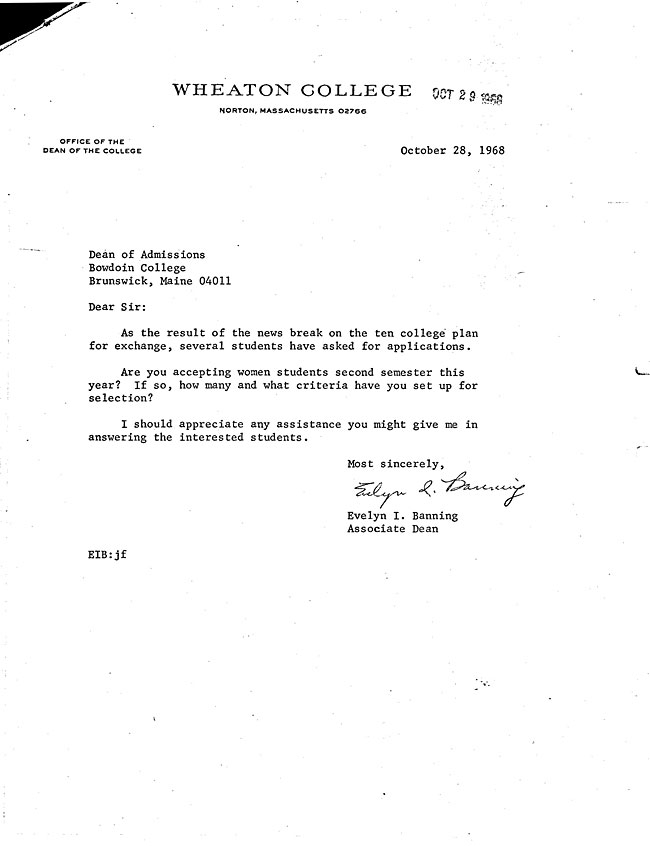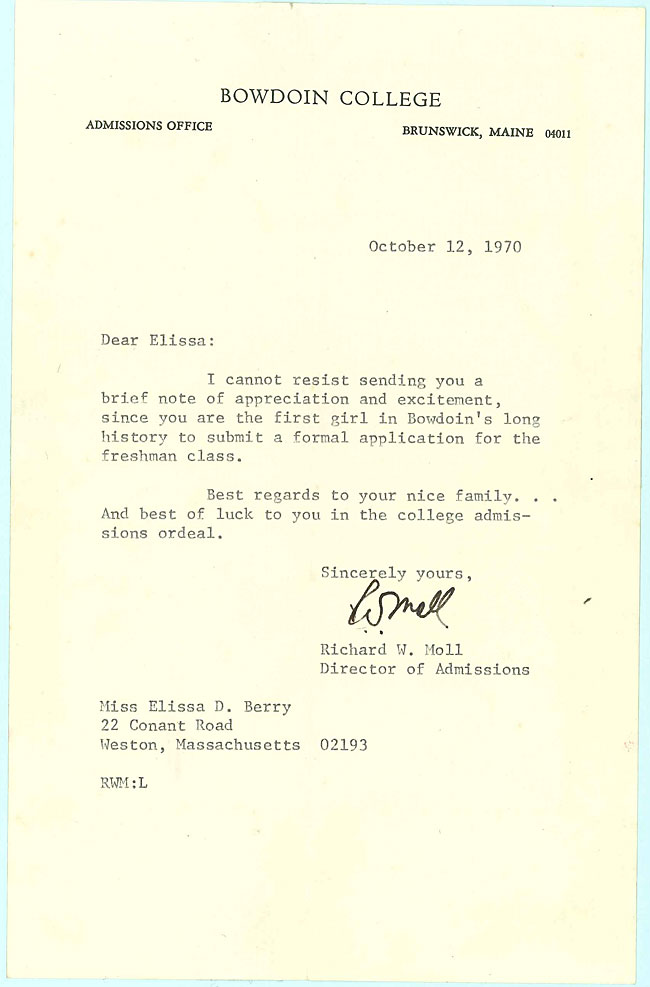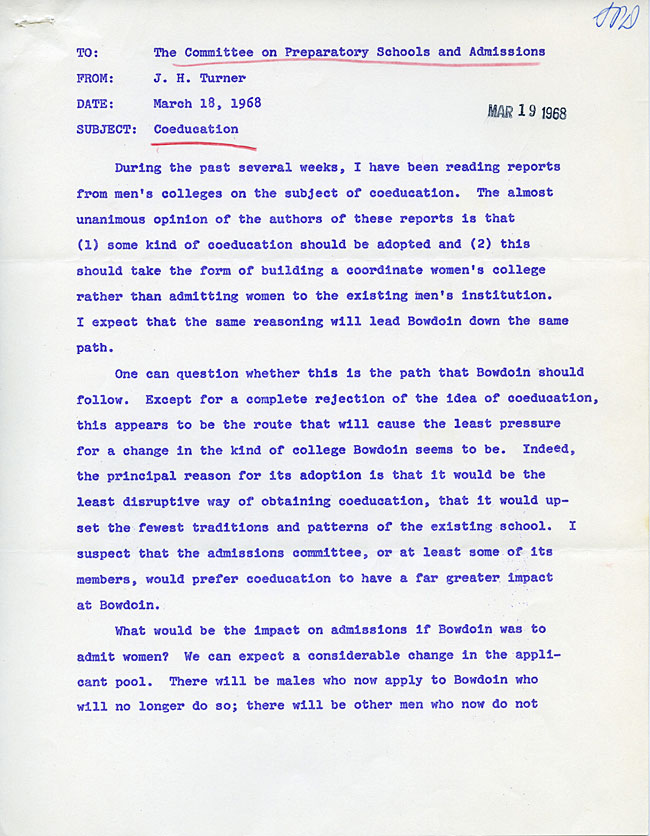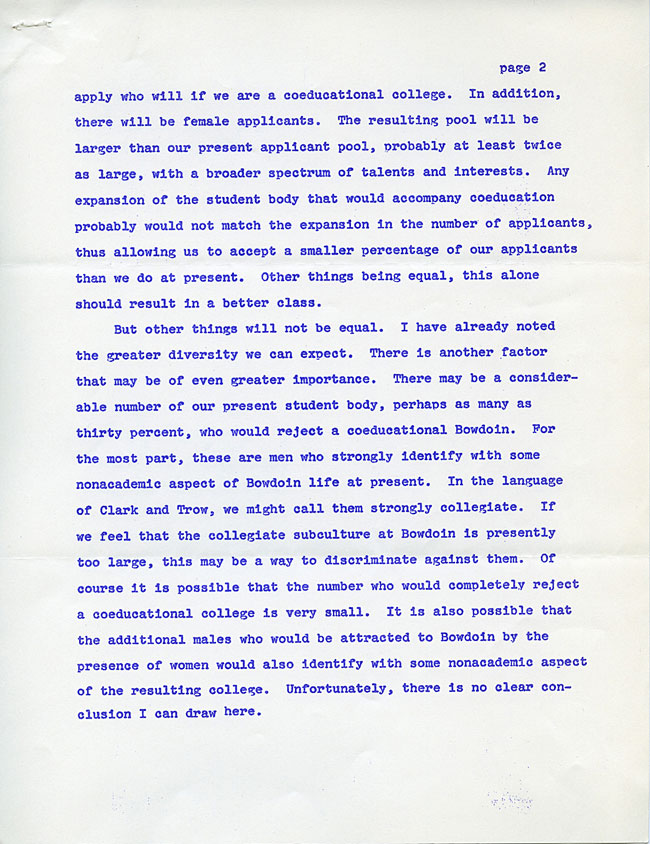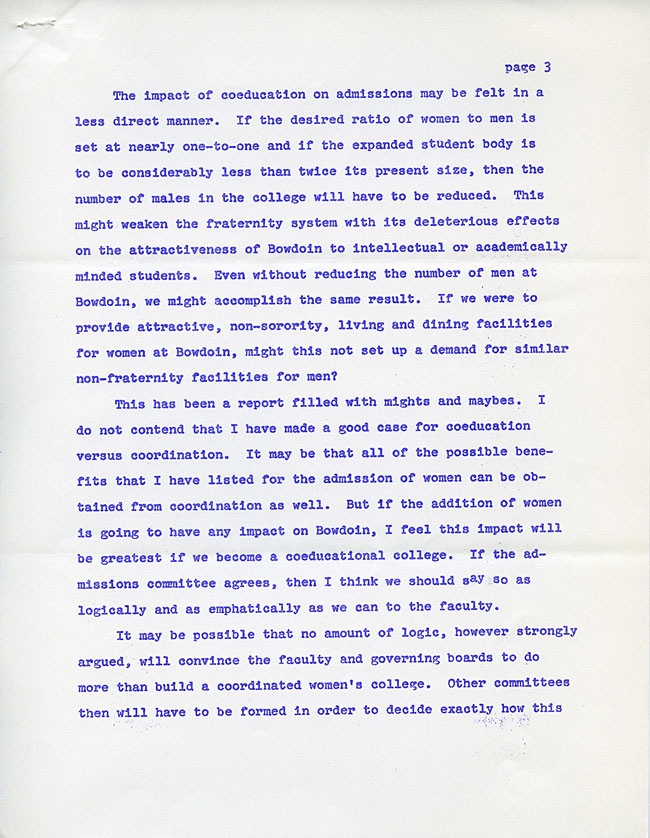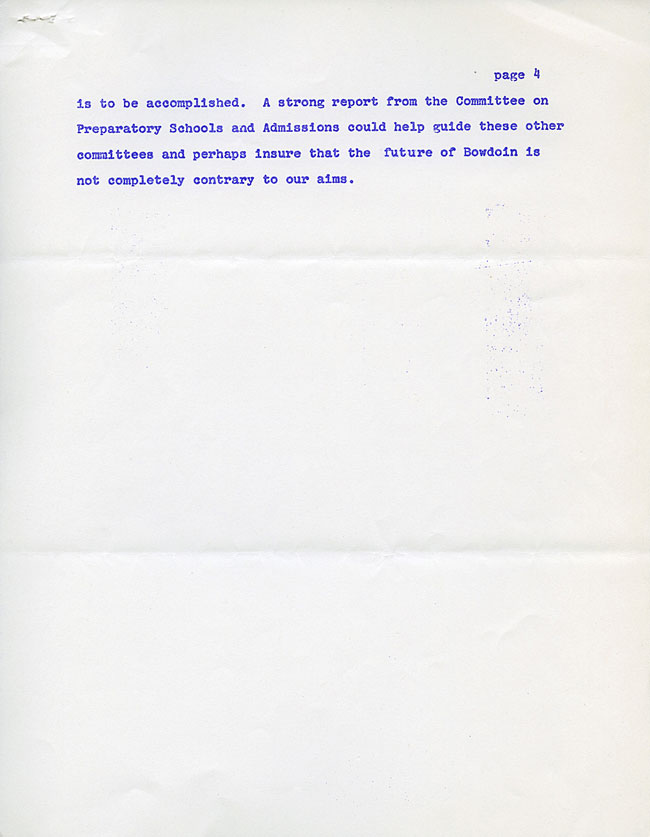The first women’s coach at Bowdoin, and supervisor of the women’s athletic program, Sally LaPointe, wrote this letter regarding the condition of women’s sports in May of 1977, about six years after the College first admitted women (Document JH, 58). It seemed to be LaPointe’s responsibility to update the president on the status of women’s athletics annually, or bi-annually. She alludes to the impact of equal rights and Title IX—implemented in 1972, just after coeducation started at Bowdoin—on women’s athletics (see http://www2.ed.gov/about/offices/list/ocr/docs/interath.html for more information). That is, Title IX resulted in more women participating in sports before college, which, in turn, meant more women wanted to be athletes at the College.
LaPointe comments on fall, winter, and spring teams, and praises the athletes for their efforts. However, she notes the necessity for more female coaches and assistant coaches because of the large number of participants, which had increased drastically since the President’s Commission of 1972. LaPointe concludes by applauding the women for their contribution to the College, for their hard work, and for their spirit during their respective seasons.
President Howell responds to LaPointe (document available in Special Collections at Bowdoin) thanking her for the report, but offers no evidence or promises of immediate action to be taken to fulfill her requests.
